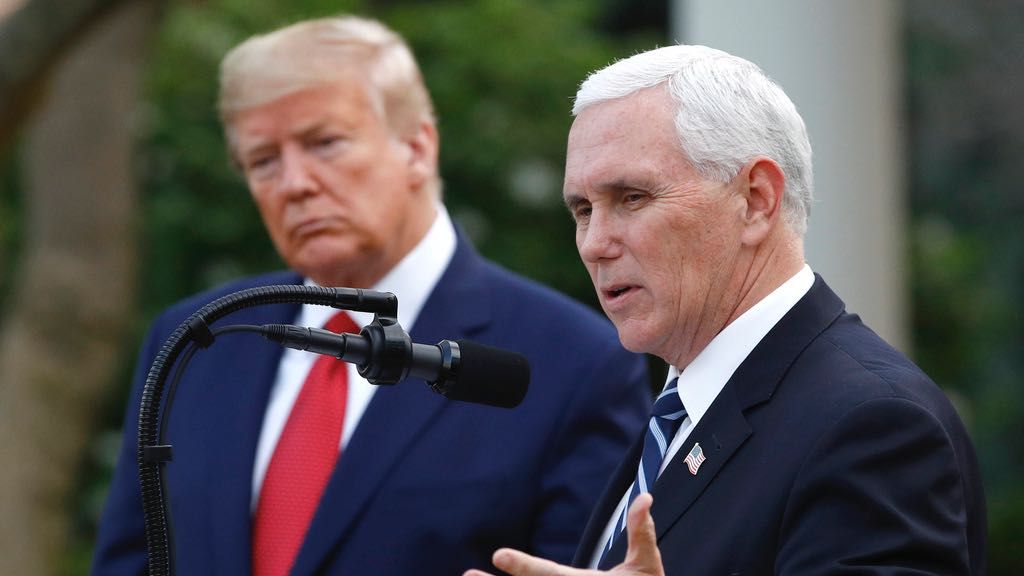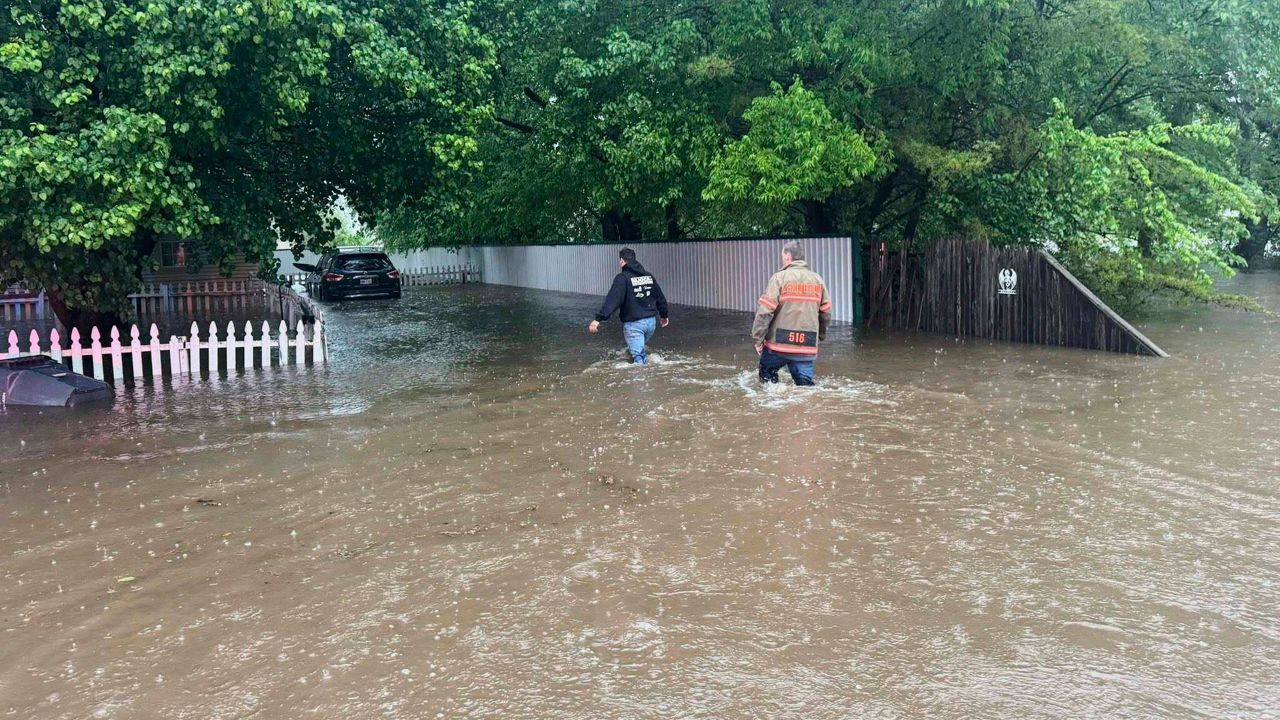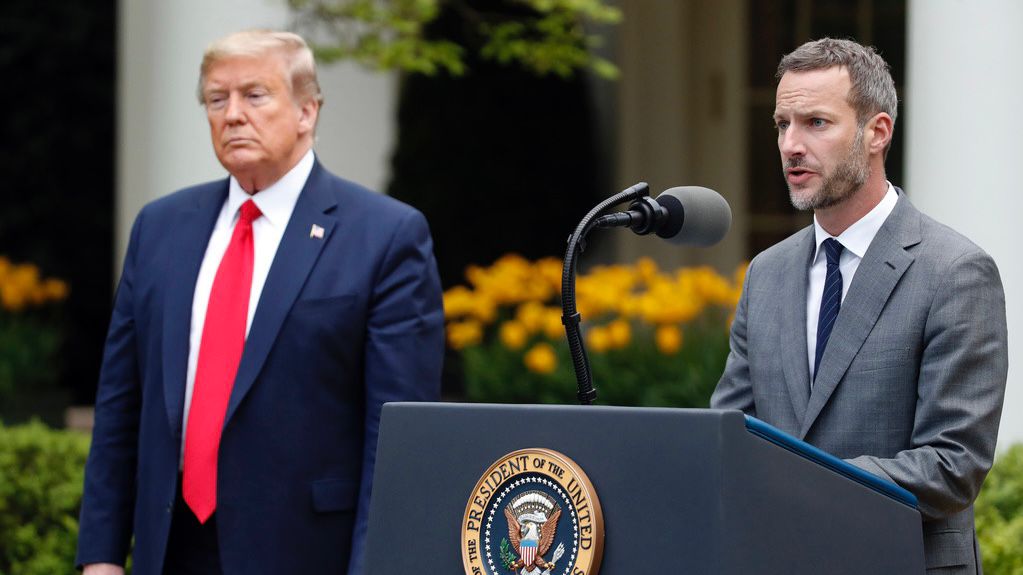With the potential for a partial government shutdown on the horizon in days and billions of dollars in aid to Ukraine hanging in limbo as the country entered its third year of war, President Joe Biden on Tuesday summoned Congress’ top four leaders to the White House.
Three of the four top members of Congress – Senate Majority Leader Chuck Schumer, D-N.Y., House Minority Leader Hakeem Jeffries, D-N.Y., and Speaker Mike Johnson, R-La., – emerged from the high-stakes Oval Office sit down expressing confidence Washington will avoid a lapse in funding. At the same time, they signaled daylight still remains between Democrats and the House GOP on Ukraine aid and the border.
“We believe that we can get to an agreement on these issues and prevent a government shutdown,” Johnson, who said he met individually with Biden following the larger group meeting, told reporters outside the west wing. “And thats our first resposibility.”
“I’m caustiously optimistic that we can do what is neccessary within the next day or so to close down these bills and avoid a government shutdown,” Jeffries, who spoke alongside Schumer before Johnson left the west wing said.
During brief remarks at the top of the sit-down between Biden, Vice President Kamala Harris, Schumer, Jeffries, Johnson and Senate Minority Leader Mitch McConnell, R-Ky., the president warned of dire consequences for the U.S. economy if lawmakers do not pass a bill to fund the government.
"A shutdown would damage the economy significantly," Biden said. “I think we all agree to that, and we need bipartisan solutions."
"It's Congress' responsibility to fund the government," he added. "You gotta get about doing it."
Washington is barrelling towards another government funding deadline at the end of the week. Funding for the Departments of Agriculture, Energy, Veterans Affairs, Transportation, and Housing and Urban Development will expire at at 11:59 p.m. Friday. The rest of the departments will run out of cash on March 8 – one day after Biden is scheduled to deliver his State of the Union address.
Friday’s deadline marks the fourth time this fiscal year that lawmakers find themselves quickly approaching a possible shutdown with no deal in place. The first time in September ultimately triggered the ousting of former Speaker Kevin McCarthy, R-Calif., leaving the lower chamber leaderless for multiple weeks.
McConnell expressed confidence that a shutdown would be averted.
"I think it's pretty safe to say we all agree we need to avoid a government shutdown," the Kentucky Republican said. "The speaker was optimistic that they would be able to move forward first with the four bills, and under no circumstances does anybody want to shut the government down, so I think we can stop that drama right here before it emerges. We're simply not going to do that."
Johnson said as much after the meeting, expressing that he was "very optimistic" they'd be able to avoid a shutdown.
"We have been working in good faith around the clock every single day for months and weeks, and over the last several days, quite literally around the clock, to get that job done,” the Louisiana Republican told reporters. “We’re very optimistic."
Despite the optimism expressed on the domestic funding side, the fate of Biden and Congressional Democrats’ plea for Johnson to put the Senate-passed foreign aid package, which includes assistance to Ukraine, Israel, the Indo-Pacific and more, up for a vote appeared more uncertain.
Schumer and Jeffries both used the same word to describe the Ukraine portion of Tuesday’s conversation: “intense.”
When asked why he called the Ukraine discussion in Tuesday’s meeting “one of the most intense” he has “ever encountered," Schumer stressed "the urgency of supporting Ukraine and the consequences to the people of America, to America’s strength if we don’t do anything."
Johnson insisted to reporters that addressing the surge in migrants at the U.S.-Mexico border had to be the first priority, despite playing a role in quickly shooting down a bipartisan border deal earlier this month.
“I was very clear with the president and all those in the room that the House is actively pursueing and investigating all the various options on that and we will address that in a timely manner,” Johnson said of the Ukraine aid and the $95 billion foreign assistance bill that passed in the Senate earlier this month. “But again, the first priority of the country is our border and making sure it is secure.”
The speaker has maintained that he believes Biden must take executive action when it comes to the issue – a point he said he reiterated to the president on Tuesday.
“I believe thee president can take executive authority right now today to change that and I told him that again today in person,” he said.
Schumer noted Biden told Johnson he can’t take action without personnel “and you need legislation for personnel,” adding the president “won” that discussion.
“It was clear that we want to fix the border, but it was also clear that the speaker did not give a reason why you had to do one before you did the other,” Schumer said, referring to Johnson’s insistence the border must be the priority over Ukraine aid.
Last week, the president told governors convened at the White House that he was exploring executive orders he could take on the border in the absence of action from Congress, Govs. Spencer Cox of Utah and Jared Polis of Colorado told reporters. However, Cox added that Biden “seemed a little frustrated that he was not getting answers from attorneys that he felt he could take the kind of actions that he wanted to.”
Earlier this month, the Senate passed a $95 package providing aid to Ukraine amid Russia’s invasion, Israel as it battles Hamas, the Indo-Pacific as China grows its influence in the region and more.
The GOP originally insisted the foreign aid must be tied to substantial border policy changes in order to get the party’s support – setting in motion nearly five months of arduous negotiations between a bipartisan group of senators and the White House. But the final product from those talks – an overhaul of border and asylum policies coupled with the foreign aid – was quickly shot down by enough Republicans, including Johnson, to kill it, leading the Senate to drop the border provisions and move forward with just foreign assistance.
Biden has derided the GOP for killing the deal and is set to visit the border in Brownsville, Texas, on Thursday – the same day former President Donald Trump is schedueld to give remarks of his own at the border city of Eagle Pass.









